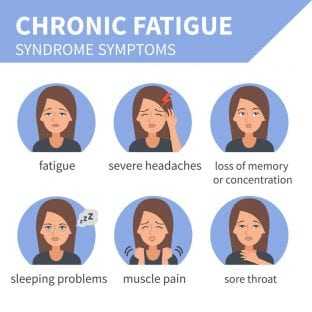The Relationship Between Fibromyalgia and Stress

Extensive 30+ years of fibromyalgia research have revealed a very strong link between persistent stress and fibromyalgia symptoms; therefore fibromyalgia is considered a stress-related disease.
Researchers have identified four main sources of stress that lead to symptoms of fibromyalgia:
1- Chronic emotional stress,
2- Chronic physical stress,
3- Stress caused by infectious agents,
4- Stress caused by environmental chemicals and toxins.

Each of these stress sources on their own are known to impair the immune system to a certain degree, but when two or more of these types of stress are at play at the same time, the immune system is unable to effectively do its job of protecting the body against toxins, infectious agents, and acute inflammation.
As the immune system gets weaker and weaker over time due to ongoing chronic stress, the inflammatory process becomes chronic which ultimately leads to the inflammatory changes in the brain that cause fibromyalgia symptoms.
Define Stress – How It Effects The Body ?
According to Dr. Bruce McEwen, a global authority on the effects of stress on the brain, “stress is anything that upsets the normal function of the body and hence, the mind. This includes diseases, injuries, toxins, mental anguish (heartache, sorrow, fear, disappointment, separation from a loved one, loneliness, etc.), constant loud noise and extreme physical exhaustion.”
Signs Of Stress, Chronic Disease Link
One of the earliest signs of stress is sleep disturbance, which can include trouble either getting to sleep or staying sleep.
Two major problems associated with sleep disturbance are: immune abnormalities and chronic inflammation (elevated levels of inflammatory cytokines) and high levels of stress hormone cortisol. Both of these can result from chronic stress.

Because chronic stress increases the buildup of inflammatory chemicals (cytokines) in the body and elevates stress hormone (cortisol), it can damage a number of organs and tissues in the body, leading to atherosclerosis, heart attacks, strokes, brain degeneration, fibromyalgia, and autoimmune disorders such as lupus, rheumatoid arthritis, and chronic fatigue syndrome.

Neuroscience studies has shown chronic stress causes critical areas of the brain to shrink (atrophy); this was first seen in patients with post-traumatic stress syndrome (PTSD) who had been exposed to extremely stressful events such as war, severe trauma, rape or a life of sexual or physical abuse.
Dr. Bruce McEwen’s research has shown that if higher concentrations of cortisol are present for extended period of time, it causes severe depression, chronic stress, memory loss, and anxiety disorders which are all associated with brain shrinkage. So when the cortisol levels remain high for too long, that begins to destroy brain connections which are referred to as dendrites and synapses (brain tissue), which also leads to massive lipid peroxidation and free radical damage in the brain.
There is now evidence that the increase chronic stress and several other reasons has led to a dramatic upsurge in anxiety-related disorders – especially the panic disorders, often referred to as panic attacks.
Studies have demonstrated that severe stress during childhood development – even during adolescence – could activate genes that cause anxiety disorders and depression when children reach adulthood.
Effects Of Stress On Health
Chronic stress is thought to be the major underlying cause of almost all health conditions, which may begin with one or more of the following symptoms:
- Diffuse muscle and joint pains
- Constipation
- Diarrhea
- Stomach cramping
- Cold, sweaty hands
- Decreased sex drive
- Headaches
- Confusion
- Forgetfulness
- Overeating or loss of appetite
- Chest pains
- Restlessness
- Pounding heart
- Irritability
- Shortness of breath
- High blood pressure
- Teeth grinding
- Sadness or crying spells
- Mood swings
- Withdrawal
How To Lower Stress ?
A great solution to lowering stress is by first having a clear understanding of how stress effects your body and learn the latest breakthrough techniques on how to best manage stress to keep yourself from continuing to suffer from a chronic disease condition.
The most complete book about the effects of stress and how to best regulate stress is “Why Zebras Don’t Get Ulcers”, written by the world renowned stress specialist and researcher Dr. Robert Sapolsky, who is also a professor of Biological Sciences, Neurology, Neurological Sciences, and Neurosurgery at Stanford University.
This book has my highest recommendation as far as helping anyone suffering from a chronic condition, such as fibromyalgia, learn how to best harmonize with life’s stressful situations and challenges in such a way that can help improve chronic illness.
To Your Good Health,





